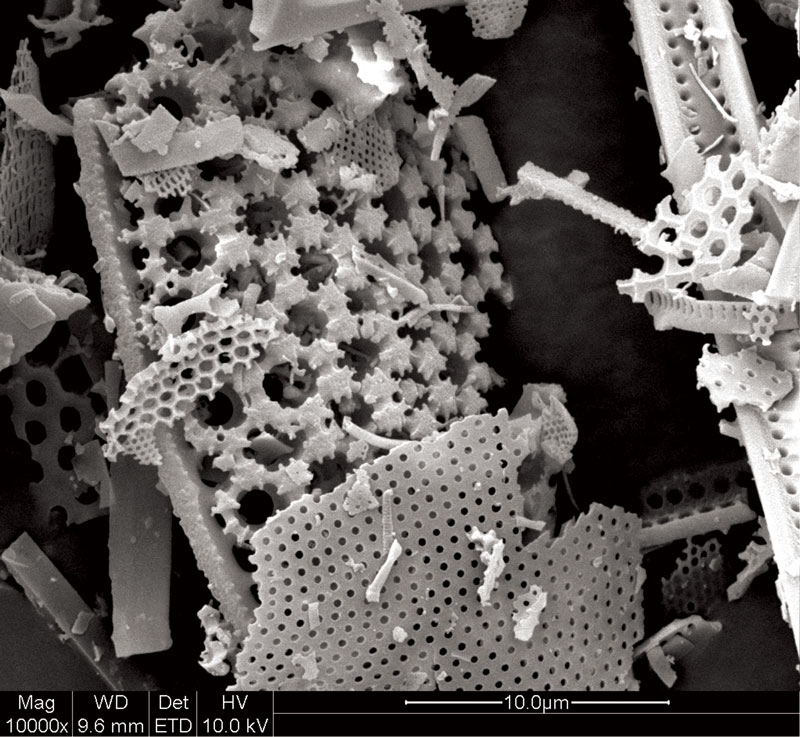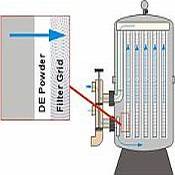Diatomaceous Earth Filtering vs Other Filtration Methods: What You Need to Know
Diatomaceous Earth Filtering vs Other Filtration Methods: What You Need to Know
Blog Article
Unlocking the Conveniences of Diatomaceous Earth Filtering System for Pure and Tidy Water
The exploration of diatomaceous planet (DE) filtering offers a compelling option for those looking for lasting and effective water purification techniques. As the demand for clean water continues to rise internationally, comprehending the complex applications and advantages of DE filters might expose essential insights for both house and industrial use.
What Is Diatomaceous Earth?
Diatomaceous earth, commonly referred to as DE, is a normally happening sedimentary rock composed mostly of the fossilized remains of small, aquatic organisms referred to as diatoms. These single-celled algae are rich in silica, which is the main part of DE. The unique framework of diatomaceous planet contains tiny, permeable bits that provide a high surface area, making it an effective filtering system tool.
DE is commonly harvested from ancient lake beds and down payments, which have accumulated over countless years. It looks like a fine, white to off-white powder, and its chemical composition primarily includes silicon dioxide, along with trace amounts of different minerals. This composition is what offers DE its remarkable residential or commercial properties.
In enhancement to its application in water filtering, diatomaceous planet is made use of in a variety of sectors, consisting of farming, food storage, and pest control. Its ability to soak up dampness and its unpleasant high qualities make it a beneficial source in these areas. On the whole, diatomaceous planet sticks out as an eco pleasant option for different applications because of its natural origin and efficiency in filtration procedures.

Exactly How Diatomaceous Planet Filtering Functions

When water passes via a diatomaceous earth filter, the fine particles are caught in the elaborate network of little pores. The shapes and size of these pores are critical, as they are developed to target specific impurities while allowing clean water to flow through. As water relocations via the filter medium, the mechanical activity of the diatomaceous earth catches bigger particles, while smaller sized contaminants are soaked up or physically obstructed.
Moreover, the surface location given by diatomaceous planet is extensive, enhancing its capability to hold pollutants. This causes a gradual accumulation of trapped bits, which can be occasionally gotten rid of via a backwashing process. This method makes certain consistent filtration effectiveness and adds to the overall performance of keeping clean and pure water.
Benefits Over Conventional Purification
When comparing diatomaceous planet filtering system to conventional filtering methods, a number of benefits arise that improve water filtration effectiveness. Among the main advantages is the superior filtering ability of diatomaceous earth (DE), which can remove smaller sized bits and impurities that conventional filters may miss. The tiny framework of DE permits it to record impurities, consisting of microorganisms and protozoa, causing cleaner water.
Furthermore, diatomaceous planet filters tend to have a much longer life expectancy than standard media, minimizing the frequency of substitute and upkeep. This durability not just reduces operational prices but also minimizes waste, adding to more sustainable techniques. DE filters also operate at reduced pressure, which can result in power financial savings in large-scale applications.
One more substantial advantage is the flexibility of diatomaceous earth. It can be utilized properly in different contexts, from community water therapy centers to specialized commercial applications (diatomaceous earth filtering). The all-natural make-up of DE makes it an eco-friendly alternative, without damaging chemicals and contaminants often connected with synthetic filtering systems
Applications in House and Sector
Numerous applications of diatomaceous planet filtering can be located in both household and commercial settings, highlighting its versatility and effectiveness in water filtration. In property settings, diatomaceous earth (DE) filters are generally utilized in pool, effectively catching particles and microorganisms, consequently preserving water clarity and health. In addition, numerous families make use of DE in home water filtration systems, where it offers to get rid of pollutants, debris, you can find out more and damaging virus, making certain secure alcohol consumption water.
In industrial applications, diatomaceous planet filtering system is important to numerous sectors, including food and drink production, pharmaceuticals, and wastewater treatment. In the food sector, DE is made use of in the filtering of beer and white wine, facilitating the removal of yeast and other particulates while maintaining the beverage's taste profile. In wastewater therapy centers, DE filters play a crucial function in improving water high quality by trapping impurities and promoting the recycling of water resources.
The effectiveness of diatomaceous planet in both home and industrial applications highlights its indispensable duty in advertising tidy water access, adding to public wellness, and sustaining sustainable techniques.

Picking the Right DE Filter
Choosing the proper diatomaceous planet (DE) filter is important for making sure optimum water purification, whether for property or commercial use. diatomaceous earth filtering. The choice of a DE filter relies on several vital elements, consisting of the details application, circulation price requirements, and the desired level of filtration
First, examine the quantity of water to be filtered. For household usage, smaller sized filters are sufficient, while industrial applications might demand larger, high-capacity systems. Next off, think about the circulation price; it is necessary to pick a filter that can handle the needed throughput without compromising water top quality.
In addition, review the purification degree; DE filters been available in various qualities, influencing the elimination of particulates and contaminations. As an example, higher-grade filters are optimal for applications needing rigid purity degrees.
Finally, think about the upkeep needs and the availability of replacement DE powder. Filters Visit Website that are much easier to maintain and have easily available materials will lower downtime and functional prices. By thoroughly considering these aspects, one can choose a DE filter that satisfies details requirements, making sure the delivery of tidy and safe water.
Final Thought
In summary, diatomaceous earth filtering stands for a substantial development in water purification technology, offering enhanced effectiveness and effectiveness in recording pollutants. Accepting diatomaceous planet filtering system can lead to boosted public wellness outcomes and higher accessibility to tidy water.
The expedition of diatomaceous planet (DE) filtering offers a compelling alternative for those seeking sustainable and reliable water filtration methods.When comparing diatomaceous planet filtering to typical filtration approaches, a number of benefits emerge that enhance water purification efficiency.Many applications of diatomaceous earth filtering system can be located in both family and commercial setups, highlighting its adaptability and efficiency in water purification. In residential his response settings, diatomaceous earth (DE) filters are generally employed in swimming pools, efficiently catching particles and microbes, consequently keeping water clarity and health. In wastewater therapy facilities, DE filters play a critical role in enhancing water high quality by capturing contaminants and promoting the recycling of water resources.
Report this page